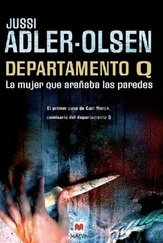Joe said, Isn’t it possible they just want to say that they are having a good time? It’s possible; one ought perhaps to take into account that it is fun to be part of an audience that wants to roar. Norma asked whether Joe had seen it. He said no. Norma said, “Well, then you don’t know. It’s not a musical audience roar. It’s not an avant garde roar. It’s a march roar. A rally roar. A parade roar.” Joe said, “You mean a lynch roar.” Norma said, “Now that’s going too far.”
Just two nights ago, I went to a party with three large dinner tables. It was mixed, the rich and famous and the reporters who had helped them on their way. There were some intellectual sharks, some arrivistes, some sheep, good souls, professors, editors, some radicals, who themselves invite poets, novelists, sophomore rioters, and visiting Englishmen to dinner, which is served by maids. This party was given by two kind, intelligent Americans I knew from college. They wanted to do good and to know, like people out of E.M. Forster or Henry James. The purpose was for the senior senator of an American liberal state and an Indian dignitary, a woman, to meet a cross section of American opinion. They met it. The first course was aspic. The dignitary thought somebody was going to attack her for Indian educational policies in Kerala. No one knew anything about India at all. She relaxed and grew bored. The senator thought he was going to meet the young and learn about them. I was sitting next to him. I said I thought he and I might be among the last three people in the room who still believed in the electoral process. He said, “Thanks, sweetheart.”
Suddenly, after dessert, a lady at my table — a donor to controversial social causes, now half persuaded to devote her money to the cause of saving art — said she thought the dinner would be wasted if the conversation did not become general, if it was all private bon mots spliced together, or just gossip. She thought we ought to talk about America today. She called first on one of those social academics, a man who had vecu a bit, whose bow tie was perpetually atilt, perhaps to show himself at an eccentric angle to the dinner jackets that he wore, what they implied. He rose, red-faced and angry, to his feet. He said he felt this country now was the world’s most murderous and corrupt. He happened to know, he said, of two deaths at Kent State that had not been reported, and of other grave matters he was not at liberty to disclose. He felt the only hope for humanity now lay in the vitality and idealism of the third world.
The lady who led the discussion, unperturbed, asked a tireless, self-effacing worker in the cause of civil rights whether he had anything to say “about all this.” He leaned his head against the wall, then stood up. “Bertram,” he said, “I am so offended by what you have just said, I don’t know what to say to you.” He sat down. The lady called upon a poet, a surrealist who, with clear reluctance, got to his feet and said, turning to the Indian lady, “I think in this country we need to disburden ourselves of our, our burden of rationality.” He sat down. It did not seem exactly India’s problem.
A liberal reporter of military affairs was called on. He said he didn’t want to discuss the morality of it, but that anyone who had covered the military would know…;“I know something about the military,” another reporter, younger, fiercer, gray with anger, said, rising to his feet and interrupting. Then he said he knew that the fabric of our whole society was stretching very thin. The editors — one local popular, one national radical — talked well when they were called on, discursive, rambling. It was as though they had a repressed and abiding wish to have their say, in their own words for once. The party ended the only way it could. A McLuhanite apostle, revered as a physics genius in these circles, spoke. He was in his seventies, extremely hard of hearing. He spoke long and loudly. He continued speaking. “I’m sorry to have to interrupt,” the lady moderator said, after geologic time spans passed. He did not hear her. He went on.
“I’m very sorry to have to interrupt,” she said, more loudly. He heard nothing. He continued speaking. She kept trying. Finally, some clear-sighted soul rose to propose a toast. “All stand,” he said. Everyone stood. For a few moments the clear-sighted soul and the deaf genius were speaking in duet. Then the genius, looking around, subsided. “The reason we are gathered here is to honor our hostess,” the good soul said, and drained his glass. So did we all, and then went home with all deliberate speed. I took a cab home. The driver ranted. We passed three men, two beating up a third. They had pulled his sweatshirt up over his eyes. He could not see them. A crowd had gathered, interested. Suddenly a young man got out of the cab beside mine. “That’s enough!” he shouted. The scene froze a minute. Then it started up again. After all, he was unarmed; nobody knew him. He moved closer. He said, “That’s enough,” again. The whole thing stopped, dissolved. The beaten man pulled his sweatshirt down over his injured face, put his arms inside the sleeves, and limped away. The crowd disintegrated. I thought, What a phrase from some past time I can remember. That’s enough.
In the South, in simpler days, I remember a middle-aged gentle black worker speaking to his son who had insomnia. “When you can’t sleep,” he said, “just tell yourself the story of your life.” Now sometimes when I can’t sleep, I wonder. A twenty-four-hour curfew every day, for everybody. Suppose we blow up the whole thing. Everything. Everybody. Me. Buildings. No room. Blast. All dead. No survivors. And then I would say, and then I would say, Let’s just have it a little quiet around here.
THE CAMEL, I had noticed, was passing, with great difficulty, through the eye of the needle. The Apollo flight, the four-minute mile, Venus in Scorpio, human records on land and at sea — these had been events of enormous importance. But the camel, practicing in near obscurity for almost two thousand years, was passing through. First the velvety nose, then the rest. Not many were aware. But if the lead camel and then perhaps the entire caravan could make it, the thread, the living thread of camels, would exist, could not be lost. No one could lose the thread. The prospects of the rich would be enhanced. “Ortega tells us that the business of philosophy,” the professor was telling his class of indifferent freshmen, “is to crack open metaphors which are dead.”
“I shouldn’t have come,” the Englishman said, waving his drink and breathing so heavily at me that I could feel my bangs shift. “I have a terrible cold.”
“He would probably have married her,” a voice across the room said, “with the exception that he died.”
“Well, I am a personality that prefers not to be annoyed.”
“We should all prepare ourselves for this eventuality.”
A six-year-old was passing the hors d’oeuvres. The baby, not quite steady on his feet, was hurtling about the room.
“He’s following me,” the six-year-old said, in despair.
“Then lock yourself in the bathroom, dear,” Inez replied.
“He always waits outside the door.”
“He loves you, dear.”
“Well, I don’t like it.”
“How I envy you,” the minister’s wife was saying to a courteous, bearded boy, “reading Magic Mountain for the first time.”
The homosexual across the hall from me always takes Valium and walks his beagle. I borrow Valium from him from time to time, and when he takes a holiday the dog is left with me. On our floor of this brownstone, we are friends. Our landlord, Roger Somerset, was murdered last July. He was a kind and absent-minded man, and on the night when he was stabbed there was a sort of requiem for him in the heating system. There is a lot of music in this building anyway. The newlyweds on the third floor play Bartok on their stereo. The couple on the second floor play clarinet quintets; their kids play rock. The girl on the fourth floor, who has been pining for two months, plays Judy Collins’ “Maid of Constant Sorrow” all day long. We have a kind of orchestra in here. The ground floor is a shop. The owner of the shop speaks of our landlord’s murder still. Shaking his head, he says that he suspects “foul play.” We all agree with him. We changed our locks. But “foul play” seems a weird expression for the case.
Читать дальше












